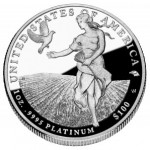By Scott Fullwiler
Update: Paul Krugman has posted a reply to this post that is a straw man. He and Nick Rowe are viewing this all through the lens of the old Monetarist/Keynesian debates in which there was a choice b/n interest rate targets and monetary aggregate targets; the Monetarist critique assumed the Keynesians were going to keep interest rates at the same level forever and not change them. Once John Taylor came up with his “rule,” everyone agreed an interest rate target could work.
What we are talking about here is operational tactics–the CB can only target an interest rate. It cannot target a reserve balances or the monetary base directly. But that is different from strategy–that is, WHERE the CB puts its target and WHEN it chooses to change the target. There is NOTHING in anything I’ve ever said or anything any PK’er, MMT’er, etc., has ever said that suggests the CB can’t set the target wherever it wants whenever it wants. The point is that whatever the target is, THAT is what its daily operations defend directly, not a monetary aggregate, not the monetary base, not reserve balances. There is nothing in anything I’ve said that would preclude the CB from running a Taylor’s Rule type strategy, for instance, that responds at any point in time endogenously to the state of the economy. That is, the target rate is an exogenous control variable (i.e., it is necessarily set by the CB) that it sets endogenously in response to economic events.
The debate between Paul Krugman and my friend Steve Keen regarding how banks work (see here, here, here, and here) has caused me to revisit an old quote. Back in the 1990s I would use Krugman’s book, Peddling Prosperity (1995), in my intermediate macroeconomics courses since it provides a good overview of what were then contemporary debates in macroeconomic theory as well as Krugman’s criticisms of various popular views on macroeconomic policy issues from that era. One passage near the very end of the book has always remained in the back of my mind; in it, Krugman critiques a popular view that was and still is highly influential regarding productivity and trade policy. He writes: “So, if you hear someone say something along the lines of ‘America needs higher productivity so that it can compete in today’s global economy,’ never mind who he is or how plausible he sounds. He might as well be wearing a flashing neon sign that reads: ‘I DON’T KNOW WHAT I’M TALKING ABOUT.’” (p. 280; emphasis in original)
In his latest post in this debate (which Keen replied to here), Krugman demonstrates that he has a very good grasp of banking as it is presented in a traditional money and banking textbook. Unfortunately for him, though, there’s virtually nothing in that description of banking that is actually correct. Instead of a persuasive defense of his own views on banking, his post is in essence his own flashing neon sign where he provides undisputable evidence that “I don’t know what I’m talking about.”
Continue reading →


 Enthusiasm for using
Enthusiasm for using 








